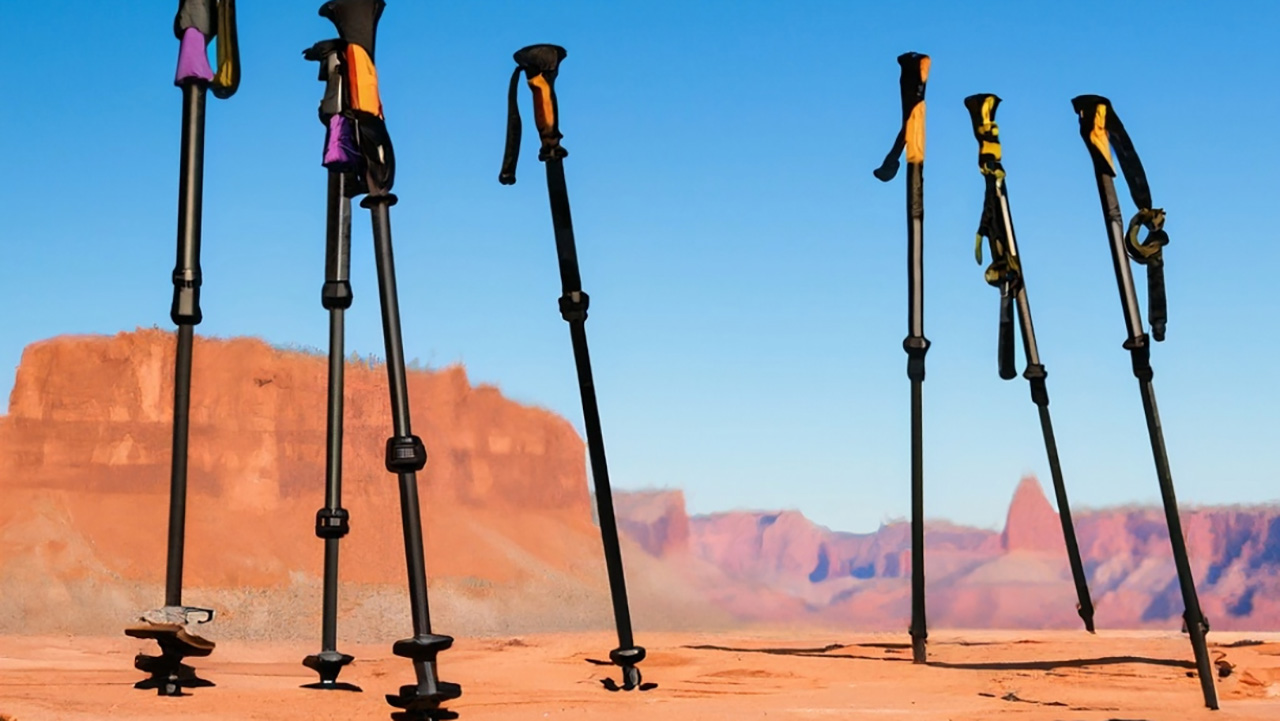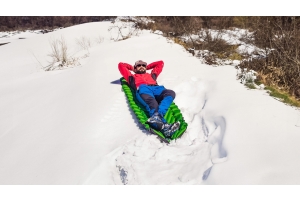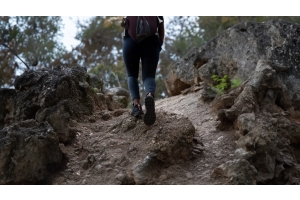
The Choice is Yours
When it comes to hiking, there are various tools and accessories that can enhance your experience on the trail. One such accessory that often divides hikers is trekking poles. These handy companions can be a game-changer for some, while others prefer a more unencumbered hike. In this article, we'll explore three pros and cons of using trekking poles, with a focus on ergonomics and cost.
Pros of Using Trekking Poles:
Enhanced Stability and Balance: One of the most significant advantages of using trekking poles is the added stability and balance they provide. Whether you're traversing uneven terrain or crossing a shallow stream, trekking poles can help you maintain your equilibrium. This is especially valuable for hikers with joint issues or those carrying heavy backpacks, as it reduces the risk of slips and falls. According to a study published in the Journal of Sports Sciences, trekking poles were found to improve stability and reduce the risk of injury during hiking.
Reduced Strain on Joints: Trekking poles can help distribute the weight of your body more evenly, thus reducing the strain on your knees, hips, and lower back. This can be a game-changer for long-distance hikers or those with pre-existing joint problems. By absorbing some of the impact, trekking poles can minimize the risk of overuse injuries. The American Journal of Sports Medicine published research supporting this claim, highlighting the reduction in joint strain and muscle fatigue when using trekking poles.
Increased Endurance and Speed: Trekking poles can improve your hiking endurance and speed by engaging your upper body. They provide a rhythm that encourages a faster pace, making you more efficient on the trail. This extra propulsion can be particularly helpful when ascending steep inclines or covering long distances. Many long-distance hikers and thru-hikers swear by trekking poles for this reason, as they can help conserve energy over extended hikes.


Cons of Using Trekking Poles:
Ergonomic Challenges: While trekking poles can offer numerous benefits, they are not without their ergonomic challenges. Using them incorrectly can lead to discomfort or even injury. It's crucial to adjust the length of the poles to suit your height and terrain, and to learn the proper technique for using them. Failure to do so can result in sore wrists, shoulders, or even blisters. Consult with experienced hikers or experts to ensure you're using trekking poles correctly.
Cost Considerations: Trekking poles, especially high-quality ones, can be a significant investment. The cost of a pair of trekking poles can vary widely, depending on the brand and features. While they can be a valuable addition to your hiking gear, they may not be affordable for every hiker, particularly beginners who are still testing the waters. It's essential to weigh the potential benefits against the initial expense and decide if they align with your hiking goals and budget.
Reduced Connection with Nature: Some hikers argue that using trekking poles can disconnect you from the natural environment. Holding onto poles can make it harder to fully engage with the trail, as your hands are occupied. Additionally, the rhythmic movement of trekking poles can create a separation between hikers and the serene, contemplative aspects of nature. If you value a more immersive and tactile hiking experience, trekking poles might not align with your preferences.
The decision to use trekking poles during hiking ultimately comes down to your personal preferences, physical condition, and hiking goals. They can be a valuable asset for stability, joint protection, and endurance, but their proper use and initial cost should be considered. If you're interested in exploring the benefits of trekking poles, the Arizona Hiking Shack is an excellent resource to seek advice and try out a selection of Kelty and Leki poles. Whether you're a novice or an experienced hiker, their expertise can help you make an informed decision on whether trekking poles are right for you.
Arizona Hiking Shack
3244 East Thomas Road
Phoenix, Arizona 85018
(602) 944-7723
Sources:
1. Schöffl V, Morrison A, Schwarz U, Schöffl I. (2012). Evaluation of trekking poles in increasing dynamic stability during hiking. Journal of Sports Sciences, 30(7), 761-768.
2. Schöffl, V., Hellenes, O. S., Mair, A. M., & Schöffl, I. (2014). Evaluation of trekking poles in untrained individuals with regard to the reduction of ground reaction forces during downhill walking. American Journal of Sports Medicine, 42(4), 940-947.






